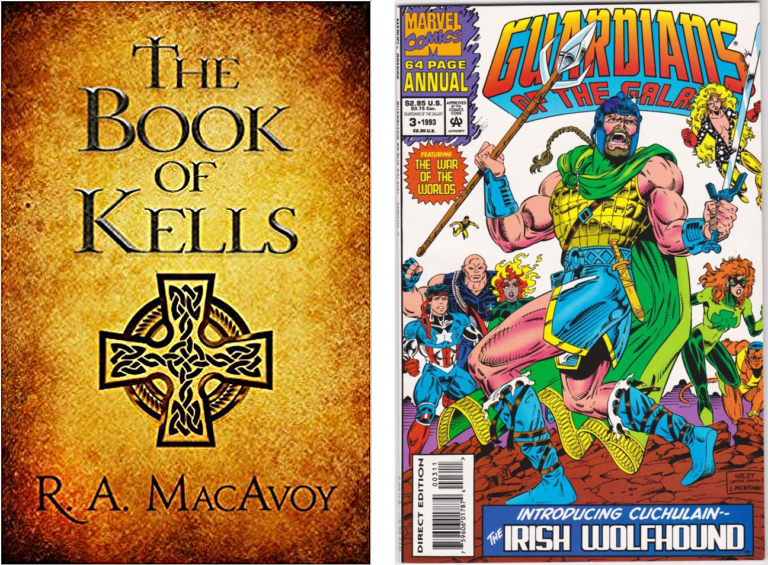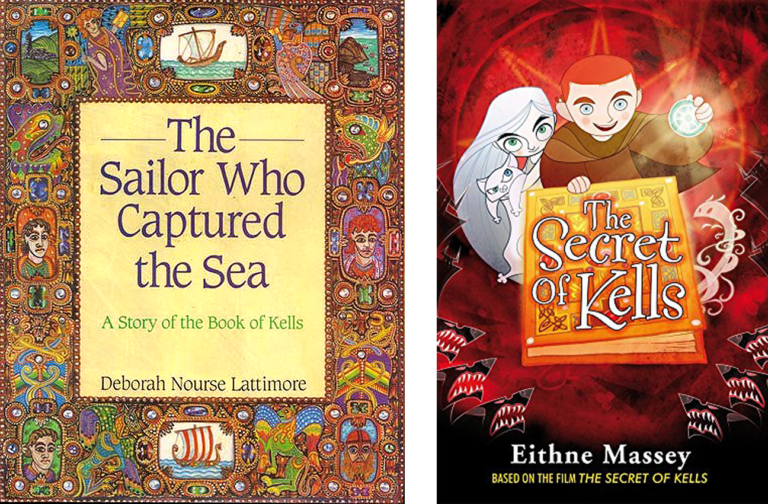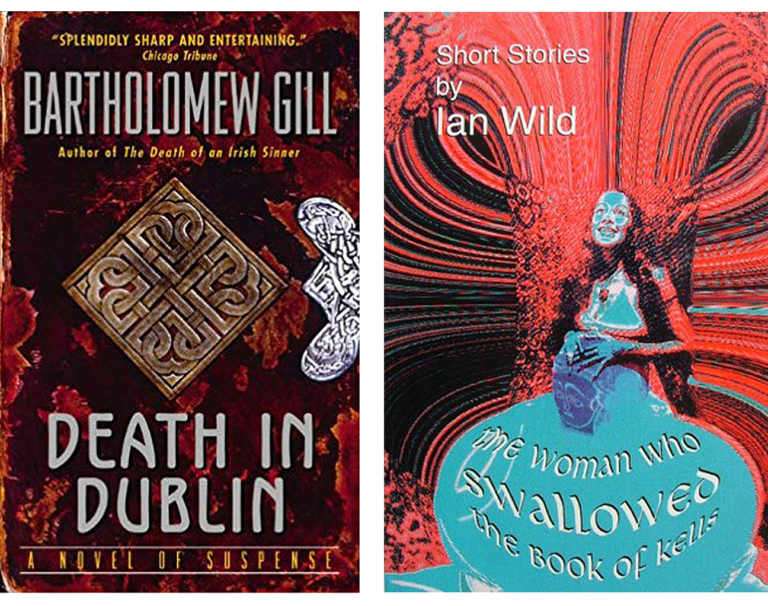Home / History / Irish History / The Book of Kells: Exploring an Irish Medieval Masterpiece / The Book of Kells in literature
This article is from the free online
The Book of Kells: Exploring an Irish Medieval Masterpiece


Reach your personal and professional goals
Unlock access to hundreds of expert online courses and degrees from top universities and educators to gain accredited qualifications and professional CV-building certificates.
Join over 18 million learners to launch, switch or build upon your career, all at your own pace, across a wide range of topic areas.

 Fig 1. R.A. McAvoy’s. The Book Of Kells (1985), Fig 2. Guardians of the Galaxy ‘The Irish Wolfhound’.
Fig 1. R.A. McAvoy’s. The Book Of Kells (1985), Fig 2. Guardians of the Galaxy ‘The Irish Wolfhound’.
 Fig 3. Deborah Lattimore’s, The Sailor who Captured the Sea: A Story of the Book of Kells (1991), Fig 4. Eithne Massey’s book based on the film The Secret of Kells (O’Brien Press, 2009).
Fig 3. Deborah Lattimore’s, The Sailor who Captured the Sea: A Story of the Book of Kells (1991), Fig 4. Eithne Massey’s book based on the film The Secret of Kells (O’Brien Press, 2009).
 Fig 5. Bartholomew Gill’s, Death in Dublin. (Avon, 2002), Fig 6. Ian Wild’s Short Story, The Woman who Swallowed the Book of Kells. (Fish Publishing, 2000).
Fig 5. Bartholomew Gill’s, Death in Dublin. (Avon, 2002), Fig 6. Ian Wild’s Short Story, The Woman who Swallowed the Book of Kells. (Fish Publishing, 2000).






